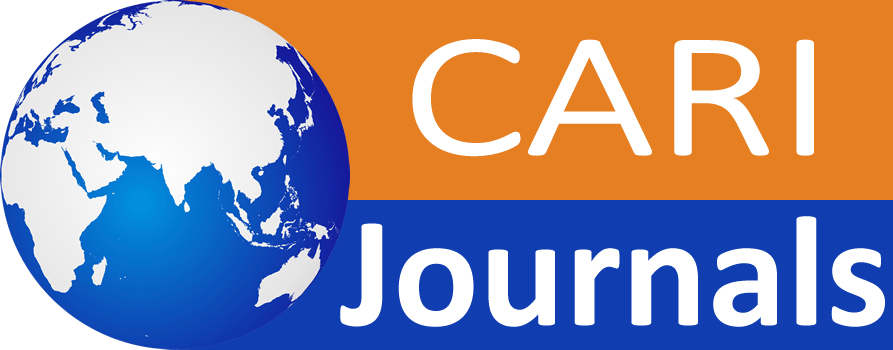In the world of academic publishing, the integrity of research is paramount. At CARI Journals, the peer review process is an essential pillar in ensuring that only the highest quality research is disseminated. By following a rigorous and transparent peer review mechanism, CARI Journals ensures that each manuscript is thoroughly evaluated for academic quality and relevance before it is made available to the global scholarly community. This dedication to maintaining standards is what sets CARI Journals apart as a leading academic publisher.

Understanding the Peer Review Process at CARI Journals
At CARI Journals, the peer review process begins once an author submits their manuscript. Before diving into the critical review process, an initial editorial assessment is conducted to confirm that the manuscript falls within the journal’s scope and meets its quality criteria. If the manuscript meets the initial criteria, it moves on to the next stage peer review. This is where the rigor of academic evaluation truly shines. CARI Journals employs a double-blind peer review process, meaning that both the reviewers and the authors remain anonymous. This method ensures impartiality and allows for honest, constructive feedback from experts in the field.

Following the peer review, authors are expected to revise their manuscripts based on the feedback provided by the reviewers. The revisions are aimed at enhancing the clarity, accuracy, and overall quality of the research. Once the revisions are submitted, the editor-in-chief makes the final decision on whether the article should be accepted for publication. Only those manuscripts that have passed through this stringent process are ultimately published in the journal. This thorough process ensures that the published articles meet the highest standards of academic excellence and contribute meaningfully to the body of knowledge.
Publication Fee and Author Benefits
CARI Journals maintains a clear and affordable publication fee, which is set at $95. This fee covers the costs of processing, reviewing, and publishing the article. Once the article is published, authors receive a certificate of publication, formally acknowledging their contribution to the academic community. This certificate serves as an official recognition of the author’s scholarly work and is a valuable asset for career advancement and academic recognition.

Moreover, the benefits do not stop with the publication certificate. Authors can also rest assured that their work will be indexed in several reputable academic databases, including Google Scholar, EBSCOhost, Scilit, and Crossref. These indexing services significantly enhance the visibility and accessibility of published articles, ensuring that they reach a wider audience and have a greater impact in their respective fields. The indexing also aids in increasing citations, which can elevate the author’s academic profile and contribute to their academic success.
Indexing and Accessibility
One of the key features of CARI Journals is its commitment to ensuring that the research published in its journals reaches a broad academic audience. To achieve this, all articles are indexed in major academic databases such as Google Scholar, EBSCOhost, Scilit, and Crossref. Being indexed in these well-respected platforms allows researchers’ work to be discovered and accessed by scholars, researchers, and professionals across the globe. This wide-reaching indexing increases the chances of the article being cited in future research, thereby amplifying the impact of the author’s work.

These indexing services ensure that the articles published in CARI Journals are accessible to a global audience. As the research community becomes increasingly globalized, the need for articles to be accessible on a worldwide scale has become more important than ever. The journal’s strong presence on platforms like Google Scholar and Scilit ensures that each article is discoverable and accessible to readers around the world, making it easier for authors to share their findings with a larger and more diverse academic community.
Conclusion
CARI Journals offers a robust platform for scholars and researchers to publish their work in a manner that upholds academic integrity and quality. Through its rigorous peer review process, affordable publication fees, and global indexing, the journal ensures that every article reaches its full academic potential. Authors can take pride in knowing that their work will undergo a thorough review, will be officially recognized through a certificate of publication, and will have the opportunity to reach a global audience via trusted academic databases. For anyone looking to contribute valuable research to the academic world, CARI Journals provides an excellent and reliable avenue for doing so.
For more information on submitting your manuscript or exploring the journal’s offerings, visit CARI Journals.

